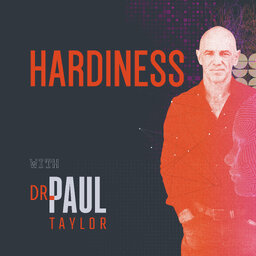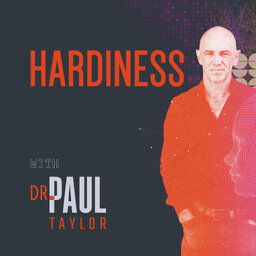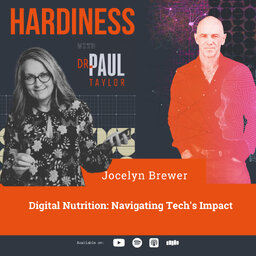Explore The Fascinating World of Your Endocannabinoid System, with Dr. Jim Connell
In this episode of The Paul Taylor Podcast, I dive deep into the fascinating world of the endocannabinoid system with Dr. Jim Connell, a leading medical expert, unravelling the intricate mechanisms that govern our body's most sophisticated self-regulation system. We explore how this complex biological network influences everything from our mental health and stress responses to immune function and neurogenesis, challenging traditional medical paradigms and revealing the body as an interconnected ecosystem rather than a collection of isolated parts. If you're seeking to understand how your body maintains balance, the profound implications of cannabinoid research, and actionable insights into supporting your endocannabinoid system, this conversation is packed with groundbreaking scientific revelations that could transform your approach to holistic health.
Key Topics:
-
From GP to Endocannabinoid Expert: Understanding the Holistic Approach to Medical Research
-
The Endocannabinoid System: A Complex Ecosystem for Bodily Homeostasis and Balance
-
Receptor Functions and Interactions: CB1 and CB2 Receptors Explained
-
Neurological Insights: The Endocannabinoid System's Role in Mood, Stress, and Anxiety
-
Medical Cannabis and Autoimmune Conditions: Exploring Potential Therapeutic Effects
-
THC, Teenage Brain Development, and the Risk of Psychosis: A Critical Examination
-
Future of Cannabinoid Research: Potential Impacts on Metabolism, Immune System, and Neurogenesis
Key Takeaways:
-
View your body as an interconnected ecosystem rather than a collection of isolated parts.
-
Investigate what nutrients might support your endocannabinoid system's optimal functioning.
-
Learn to recognise how your body rebalances itself under chronic stress.
-
Be particularly cautious about high-THC cannabis use, especially for teenagers.
-
Consider how the endocannabinoid system influences your immune and mental health holistically.
-
Understand the link between the endocannabinoid system and your cellular energy and brain health.
-
Stay curious and informed about emerging research on the endocannabinoid system.
Connect with Dr. Jim Connell
Learn more about Dr. Jim Connell
Dr. Jim Connell on LinkedIn
Connect with Paul Taylor:
Learn more about Paul Taylor
Paul Taylor on LinkedIn
Paul Taylor on Instagram
Paul Taylor on YouTube
Support the Podcast:
If you found this episode valuable, please consider subscribing, rating, and leaving a review on your preferred podcast platform. Your support helps us reach more people with important conversations like this one.
Share this episode with someone who might benefit from hearing it—emotional eating is more common than we think, and this conversation could make a difference in someone's life.
 Hardiness with Dr Paul Taylor
Hardiness with Dr Paul Taylor


